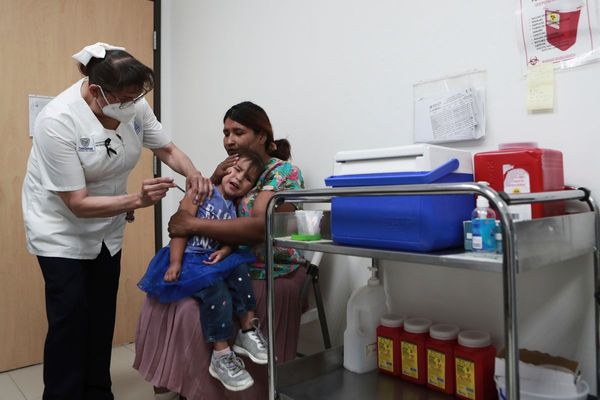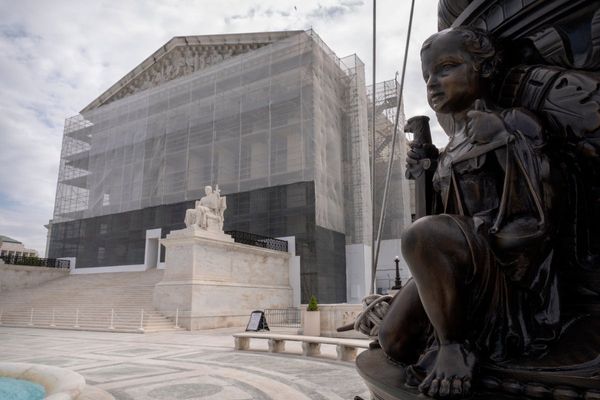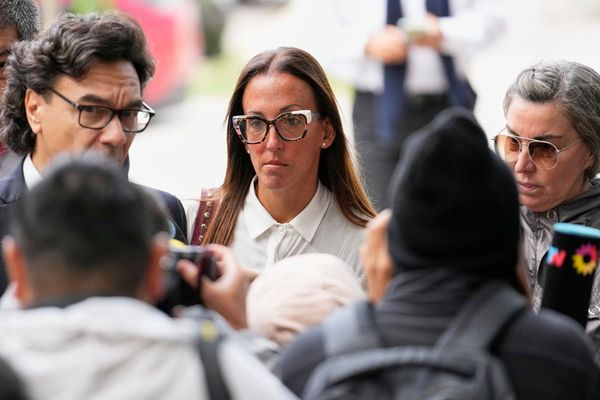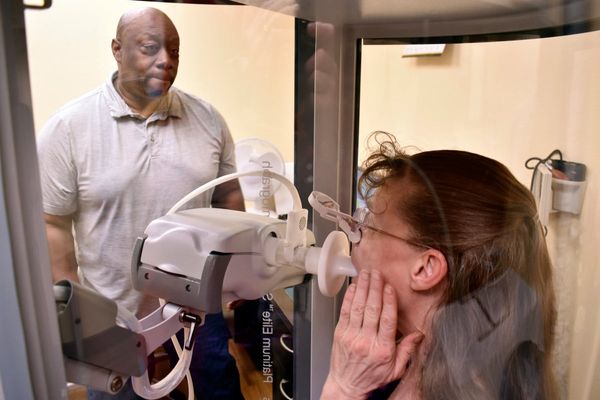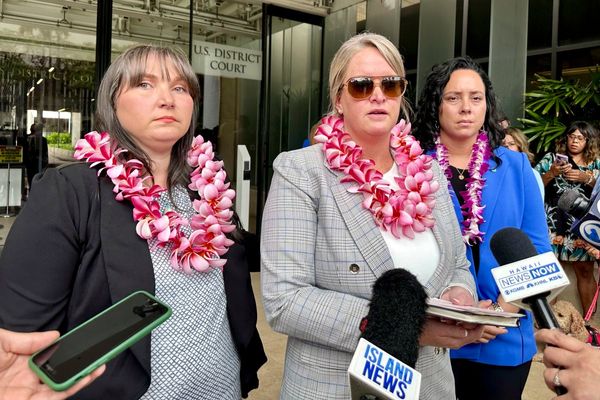
Seoul (AFP) - A scandal-plagued liberal and an anti-feminist conservative were locked in a dead heat Wednesday in the race to become South Korea's next president, with exit polls showing the two leading candidates less than a percentage point apart.
Turnout was high at 77.1 percent, including record early voting, with interest strong despite a campaign dominated by mud-slinging between the two front-runners -- the incumbent Democratic Party's Lee Jae-myung and the opposition conservative People Power Party's Yoon Suk-yeol.
The pair, both so unpopular that local media have branded it the "election of the unfavourables", have been neck and neck for months, and an exit poll by three major television networks showed Yoon at 48.4 percent and Lee at 47.8 percent.
Another poll by broadcaster JTBC, meanwhile, flipped those results, with Lee at 48.4 percent and Yoon at 47.7 percent.
Members of Lee's Democratic Party broke into cheers when the polling data was announced at South Korea's parliament, where the campaigns have gathered to watch the vote-counting process, while Yoon's conservative supporters were mostly quiet.
"Close exit polls reflect women's fear of having Yoon as president," said Kang Hoon-sik, a senior Lee camp official, referring to Yoon's avowedly anti-feminist stance.
Former top prosecutor Yoon has promised to abolish the gender equality ministry, saying South Korean women do not suffer from "systemic gender discrimination", despite evidence to the contrary.
Exit polls showed Yoon getting 58.7 percent support from men in their 20s, compared to Lee at 36.3 percent -- but for women in their 20s, Lee received 58 percent to Yoon's 33.8.
"The widespread support Yoon enjoys from young men is, frankly, absolutely terrifying from a woman's point of view," academic and female voter Keung Yoon Bae told AFP.
Young swing voters will likely decide the race, analysts said, adding the demographic's top concerns were skyrocketing house prices in the capital Seoul, social inequality and stubborn youth unemployment.
"Young voters are not loyal to any particular political party and thus can't be defined by liberal-conservative ideology," said Shin Yul, political science professor at Myongji University.
"Turnouts and choices by those in their 20s will have a significant bearing on the outcome."
'Too close to call'
"The election is too close to call," Leif-Eric Easley, a professor of international studies at Ewha Womans University in Seoul, said as polls closed Wednesday.
"Lee appears to have gained ground during the polling blackout as progressives predicted," he added, referring to the six days before the vote when polling data is not published.
Voters wore medical masks to cast their ballots, with the country recording a record 342,446 new Covid-19 cases on Wednesday amid a spike in the highly transmissible Omicron variant.
More than a million people were isolating at home after testing positive, health authorities said.The country amended its electoral laws last month to ensure they would be able to vote.
The exit polls do not include the votes of people self-isolating with Covid-19, who cast their ballots 90 minutes after the main polls closed at 6pm, nor people who voted early.
In a two-day early voting exercise last week, a record-breaking 37 percent of the 44 million people eligible cast their ballots -- the most since the system was introduced in 2013.
North Korea
The two parties are ideological opposites, and observers say the key question is whether voters will kick out incumbent Moon Jae-in's dovish liberals and usher in a new hawkish, fiscally conservative regime under Yoon.
"What the country needs right now is change," 71-year-old Hong Sung-cheon told AFP at a polling station in southern Seoul.
South Korean politics is particularly adversarial, analysts say, with presidents serving a single term of five years.Every living former leader has been jailed for corruption after leaving office.
Yoon has already threatened to investigate outgoing President Moon Jae-in, citing unspecified "irregularities".
The new president will have to confront an increasingly assertive North Korea, which has embarked on a record-breaking blitz of weapons tests this year including a launch just days before the election.
On Tuesday, a North Korean patrol boat briefly crossed the de facto maritime border, prompting the South Korean Navy to fire warning shots.Pyongyang also tested what Seoul called a ballistic missile Saturday.
The gaffe-prone opposition candidate Yoon is more hawkish on Pyongyang and has threatened a pre-emptive strike if necessary.
Lee, meanwhile, a former child factory worker turned politician, has offered a slew of fresh policies ranging from a universal basic income to free school uniforms -- but his campaign has been marred by scandal.
The 57-year-old is under pressure over a controversial land development deal in which private investors profited from a state-funded project on his watch as mayor of the city of Seongnam.
He was also forced to start his campaign by apologising for a profanity-laden phone call with his family involving disputes with his late brother and mother.
The winner of the election will formally succeed Moon in May.The incumbent remains popular, despite not achieving a promised peace deal with North Korea.
